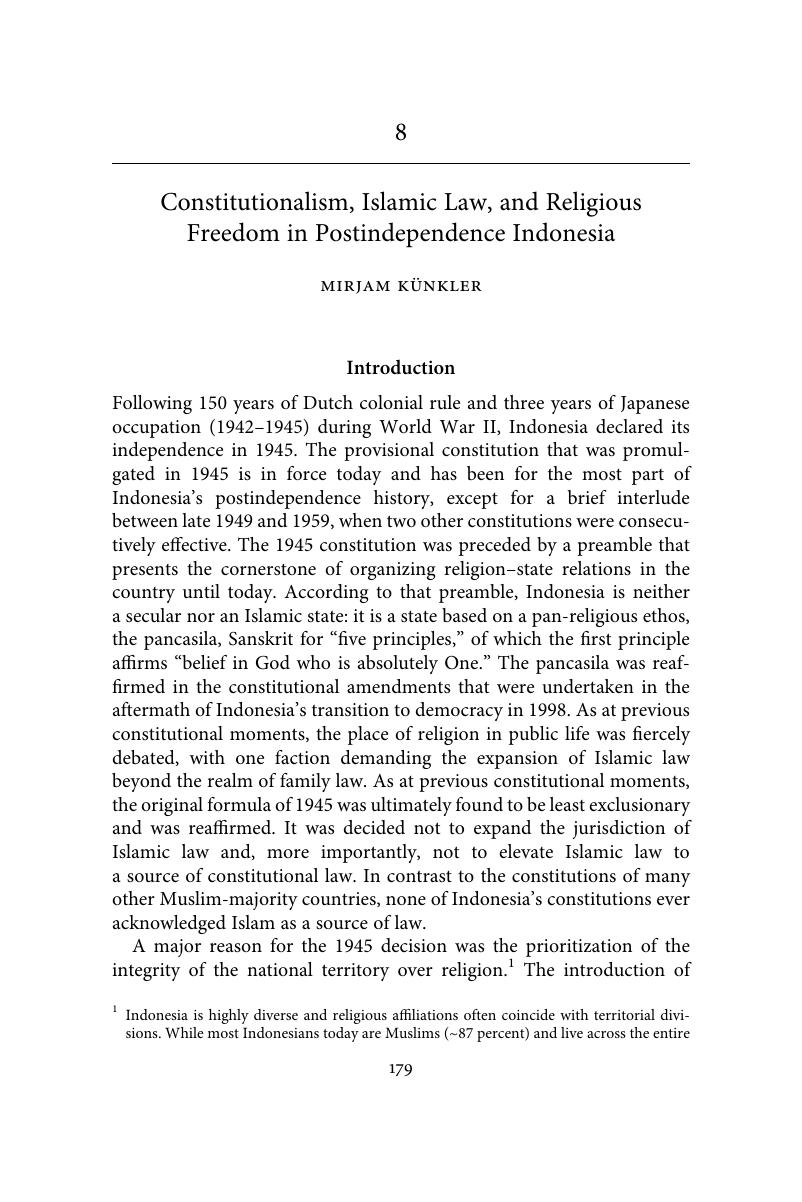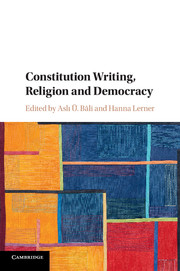Book contents
- Constitution Writing, Religion and Democracy
- Constitution Writing, Religion and Democracy
- Copyright page
- Contents
- Contributors
- Acknowledgements
- 1 Introduction
- Part I Constitution Writing and Religion under Limited Sovereignty
- Part II Postcolonial French-Influenced Constitution Writing and Religion
- Part III Postcolonial South Asian Constitution Drafting and Religion
- 8 Constitutionalism, Islamic Law, and Religious Freedom in Postindependence Indonesia
- 9 Cross-Cutting Rifts in Constitutions and Minority Rights
- 10 Islamic Law in an Islamic Republic
- Part IV Constitution Writing and Religion in Contemporary Middle East
- Part V Lessons from the Cases
- Index
- References
8 - Constitutionalism, Islamic Law, and Religious Freedom in Postindependence Indonesia
from Part III - Postcolonial South Asian Constitution Drafting and Religion
Published online by Cambridge University Press: 23 February 2017
- Constitution Writing, Religion and Democracy
- Constitution Writing, Religion and Democracy
- Copyright page
- Contents
- Contributors
- Acknowledgements
- 1 Introduction
- Part I Constitution Writing and Religion under Limited Sovereignty
- Part II Postcolonial French-Influenced Constitution Writing and Religion
- Part III Postcolonial South Asian Constitution Drafting and Religion
- 8 Constitutionalism, Islamic Law, and Religious Freedom in Postindependence Indonesia
- 9 Cross-Cutting Rifts in Constitutions and Minority Rights
- 10 Islamic Law in an Islamic Republic
- Part IV Constitution Writing and Religion in Contemporary Middle East
- Part V Lessons from the Cases
- Index
- References
Summary

- Type
- Chapter
- Information
- Constitution Writing, Religion and Democracy , pp. 179 - 206Publisher: Cambridge University PressPrint publication year: 2017

